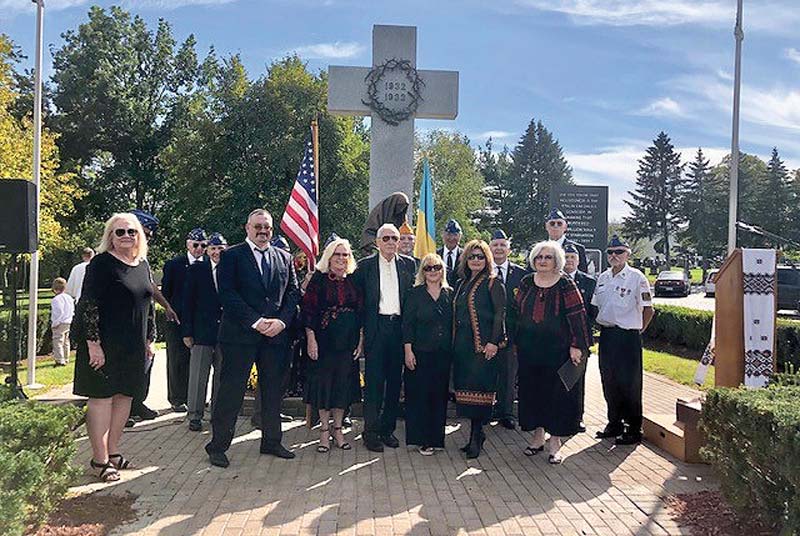BLOOMINGDALE, Ill – Taking into account ongoing COVID-19 pandemic regulations, the Ukrainian Genocide Famine Foundation invited the Ukrainian community of Illinois to participate in a virtual Ecumenical Memorial Service in memory of the victims of the Holodomor. The service was live-streamed on September 26 on the St. Andrew Ukrainian Orthodox Cathedral-Orthodox Church of Ukraine YouTube...

Participants of the Ukrainian Genocide Famine Foundation’s Holodomor commemoration included (front row, from left to right): Marie Slobidsky, Consul General Sergiy Koledov, Irene Slusarenko, Nicholas Kocherha, Oksana Mykhajliv, Vera Eliashevsky, Maria Korkatsch-Groszko, and (back row, from left to right) UAV members Walter Chyterbok, Michael Bodnar, Commander Peter Bencak, Mykola Sidelnik, Walter Nalywajko, Robert Wickman, Steven Macko and Nicholas Skyba.
